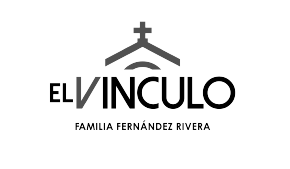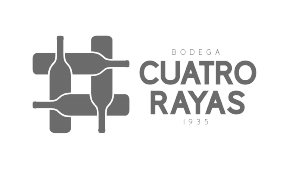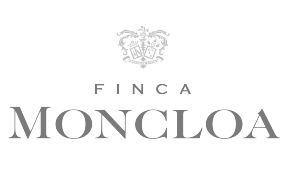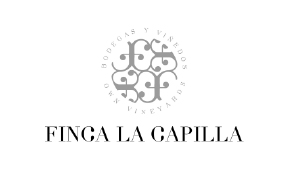News
Pedro Ballesteros MW puts the emphasis on "Ñ" on the last day of Madrid Fusión The Wine Edition 2024
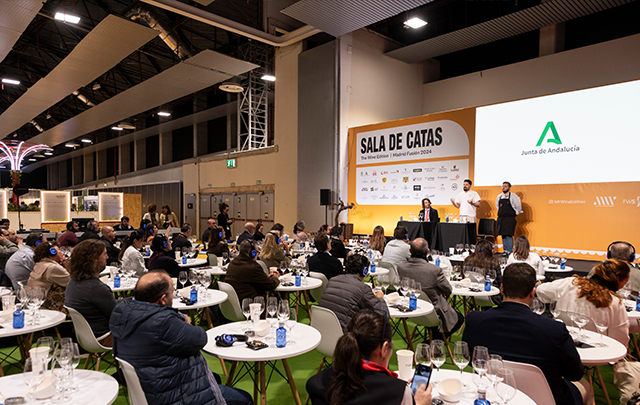
The prestige of Spanish wines and the creation of value were the main themes of Wednesday's presentations at Madrid Fusión The Wine Edition. The final day of the Wine Congress began with a presentation by Pedro Ballesteros. The first Spanish Master of Wine developed his 50+50+50 theory on the Wine Congress stage, accompanied by Pablo Álvarez from Vega Sicilia, Guillermo de Aranzábal from La Rioja Alta and José Ramón Urtasun from Remírez de Ganuza.
The top countries are those that have a relevant presence in the world's prestige markets. To achieve this, quality, quantity, and price must be combined in an almost alchemical proportion: 50+50+50. "A country's prestige is like love, it is achieved through presence", says Ballesteros. "And to have presence, you need volume, otherwise you are not in the world markets.
Spain has everything it needs to be a leader in luxury wine, but it has not yet achieved it. "We need brands capable of carrying our prestige around the world. And for that, we need excellent wines produced in sufficient quantities". According to Pedro Ballesteros MW, the 50-50-50 Club should be created: "50 brands, selling more than 50,000 bottles, worldwide, at more than 50 euros a bottle".
Until recently, this club had only one member, Vega Sicilia. Today, two more wineries have joined. In this masterful tasting, Ballesteros reviewed the careers of these great winemakers, and tasted the wines that carry the prestige of Spain's best beyond our borders. "There is nothing natural about wine, everything is managed from the moment it is cultivated. Prestige wines, those with a certain volume, go towards more risky concepts than the story of 'I don't do anything' or 'I have clayey local soils", the expert and his guests explained. "To say that making more wine makes it worse is nonsense, balance and understanding are the only valid indicators of quality”.
“For me, the most important thing has been to travel around the world, to listen and learn and then try to identify what you have", explained José Ramón Urtasun, from Remírez de Ganuza. The great wines of the world are wines for cellaring, collectors look for certain vintages and that speaks of quality, balance, and stability. "Reflecting the origin of a wine can be done from a single plot, but also by selecting the best grapes from each vineyard and also by offering regularity", adds the Rioja winemaker.
"In addition to increasing the price, we have changed the way we make wine, opened up new markets and adjusted other variables. All of this together has allowed us to increase quality and quantity to the level we are at now", defended Guillermo de Aranzábal, from La Rioja Alta. "What we are trying to achieve with Gran Reserva 890 and 904 is a characteristic and recognisable style of wine. But it took us 133 years to get 100 Parker points.
"Vega Sicilia was the only winery in the Ribera del Duero for 70 years, we were lost in a region of Castilla and, during all these years, we have tried to recover the original vineyard, and we have not stopped moving around the world, at a time when nobody was leaving Spain", says Pablo Álvarez. An opportunity that this great winery has been able to make the most of and is now reaping the rewards. "We are committed to a more homogeneous production; the great vintages have always been great in quantity, the success lies in having different personalities of the highest possible quality". On the subject of collecting and fine wine auctions, Álvarez was categorical: "More than collecting, wine should be drunk and enjoyed”.
Wine is a matter of taste, and young wines have the same value as old ones; it is up to the consumer to know the ideal moment to drink them. According to Pablo Álvarez, "it's a question of balance, but to be in the world, you need a wine that improves with time". "A strong brand must have the vocation to be eternal", concludes De Aranzábal. Regarding the entry of other regions into the universe of prestigious wines, the Vega Sicilia representative stressed that this is a "slippery slope": "Nowadays, very good wines can be made anywhere in the world, but there is a difference between a very good wine and a great wine. The latter cannot be made everywhere. The fundamental thing is not to play around, you have to do what you have to do in each place, regardless of fashion". "I hope there are new regions that have the attitude of producing large quantities at high prices", replied the head of La Rioja Alta. "Because usually these new regions are associated with small production. You have to make money to make great wines. It is a change of mentality".
"Great wines are great for a reason, whether it is historical, because they come from old vines... There are factors that are essential. A winery from a region with less tradition has a harder time, but it is not impossible", said the Remírez de Ganuza spokesman. Pedro Ballesteros MW concluded the tasting with a reflection: "These three wineries bring the name of Spain to the prestigious wine sector and take on this responsibility; we need people around the world who think of our country in terms of value, because we have a great product, and to demonstrate this it is essential to have a business vision, a project, and volume. Prestige is always given through the eyes of others".
On Wednesday morning, Juancho Asenjo continued the debate on value creation in the world of wine. The expert was accompanied by Antonio Sorgato, export director of Toro Albalá, Xavier Ybargüengoitia, former president of LVMH Estates, and Xandra Falcó, president of Círculo Fortuny.
The creation of a value chain in the industry is one of the hottest topics in the wine world today. The competitiveness of wineries and their profitability, the existing strategic models from different points of view, the importance of excellence, how to build a brand with the characteristics and trends of the global wine market, were some of the topics that Asenjo put on the table in this theoretical session.
What determines the success or failure of a winery? "Success is when you are able to achieve profitable and sustainable growth", replied Ybargüengoitia. "You have to have consistent quality, but above all you have to invest money, you have to promote your brand so that it is known, which is why it is not easy in marginal areas", added Sorgato. Falcó highlighted the creation of value around the brand: "The best example is Champagne, a small region that has been able to create volume and value, and currently generates more profit than the whole of Spain”.
"Strategy, excellence, and the brand, are the three pillars to create value, the rest is complementary", recalled the former president of LVMH Estates. "The aura of the brand, the legend, and the narrative, is what helps to create a unique experience for the consumer, and this has to be real, we can embellish it but we cannot invent it; the product has to be visible and accessible to the consumer, and all this takes time”.
"Consumers are looking for something special and something they can pass on to their loved ones, so it is important to have clear ideas and the story we want to tell", adds Toro Albalá's Export Director. Afterwards, all this has to be maintained, and that is the second part, according to Juancho Asenjo. "We are moving from a consumer who values quality and craftsmanship, to an activist consumer who defends the values of the product, so it is essential that the brand is in tune with all this", said the president of Círculo Fortuny. With regard to luxury, the experts noted an important change in the consumer, who is now more interested in the experience and the moment, than in the product itself. Xandra Falcó said that we are rejecting the word luxury, and that is why we are talking about excellence: "The new luxury is the experience, and in this sense Europe is something like the Silicon Valley of luxury; gastronomy is an example of the democratisation of this sector, and it is also happening in wine: the great bottles are around 100 euros, they are affordable".
Juli Soler Prize for young talent
On the last day of the Congress, Madrid Fusión The Wine Edition 2024 and the Spanish Wine Academy, awarded the Juli Soler Prize, sponsored by Ramón Bilbao, to the most promising young people in the different areas of the wine sector. This award, promoted by the Spanish Wine Academy, aims to discover the new generation of wine professionals.
José Manuel Borrella (Sommelier at Restaurant Martín Berasategui, Lasarte, San Sebastián), Carlota Iglesias (Sommelier at Restaurant Cabanas, Lalín, Pontevedra), Pablo González (Sommelier at La Caníbal, Madrid), Álvaro Loza (winemaker at Bodega Álvaro Loza, Briñas, La Rioja), Manuel Méndez (winemaker at Bodegas Gerardo Méndez, Meaño, Pontevedra), and Clara Puigvert (sommelier at restaurant Les Cols, Girona), were the six winners this year.
"It is important to reward young talent and fresh wisdom", said Pilar Cavero, ABC wine critic and member of the advisory board of Madrid Fusión The Wine Edition, during the awards ceremony. This was supported by Rita Soler, daughter of the late director and co-owner of elBulli with Ferran Adriá. "There is hope in the young and we must trust them, they are the future of the sector". The awards ceremony was followed by a tasting of eight wines selected by the young professionals who won the awards.
La Rioja on the plate and in the glass
The Nublo* restaurant, under the direction of chef Miguel Caño, was responsible for presenting the harmonies of the last Vinomio of the Congress. A pairing proposal with a strong Rioja accent, based on local ingredients and wines from the region. The chef paired two of his star recipes, Cardoon with Almonds and Tendon Consommé with Tear Peas and Ham, with four classic and less classic Rioja wines, such as Castillo de Ygay, Roda I, Chiguita by Jade Gross and Ojuel Supurao.
A musical finale
Pilar Cavero, ABC's wine critic, introduced some of Spain's most popular tavern owners at a round table, where the wines that best represented each house were tasted: Jesús González of La Tana (Granada), Javier Vázquez of La Caníbal (Madrid), Carlota Iglesias of Restaurante Cabanas (Lalín, Pontevedra).
"A tavern is a place where people meet to enjoy a drink, usually homemade wines with a low alcohol content, traditionally made by the tavern's owner, although today the concept is more sophisticated, the essence remains the same", explains Carlota Iglesias. "Behind a tavern there is a tavern keeper, they are places that have the personality of the person behind the bar. Nowadays, the word 'tavern' is used as a buzzword, indicating that it is a place of essence", says Javier Vázquez.
Wine is the absolute protagonist in these three national taverns. "People come to eat our stew and combine it with great wines, they come to avoid tasting menus, in search of the essence", said the sommelier at the Cabanas restaurant. "At La Caníbal, they come to drink craft beer, and also natural wine, we are getting more and more involved with bottles through quotas, we even hide some special references in case someone comes looking for them", added Vázquez. "It's a demand that, if it doesn't exist, you end up creating it out of curiosity and ignorance", admits the head of La Tana.
This sharing of the friendlier, more everyday, and accessible side of wine, was accompanied by the musical accompaniment of the "oenological rap" group A State Of Mind, who performed songs based on the wines tasted, offering a concert that put the musical finishing touches to the fourth edition of The Wine Editio Wines from Spain.
From Andalusia to Georgia in the Tasting Room
Valtravieso kicked off the last day of the congress with a tasting that explained the genesis of Gran Valtravieso, attended by Pablo González Beteré (CEO and General Manager) and Ricardo Velasco Plá (Winemaker and Technical Director).
Andalusia then took the reins of the avant-garde, without losing sight of tradition, in a tasting by Santiago Jordi, president of the Spanish Oenologists' Association, Luis Callealta and Álvaro Vela, chefs at the Ettu restaurant.
At the end of the day in this room, and to round off The Wine Edition Wines from Spain 2024, Shalva Khetsuriani, President of the Georgian Wine Association, hosted a paired tasting of Georgian wines, the guest country of Madrid Fusion Food from Spain.




































































